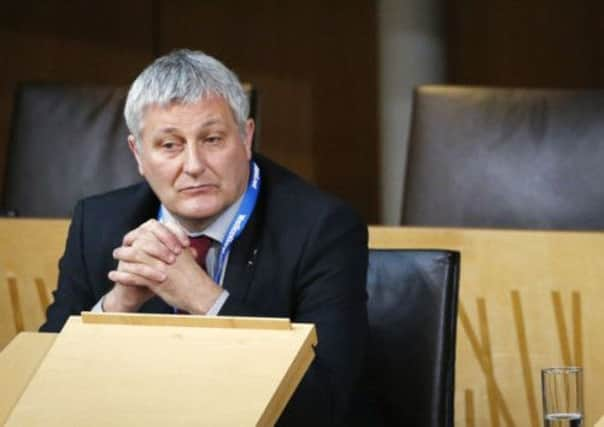Bid to remove religious voice from education


John Finnie has submitted a Private Member’s Bill proposal seeking to abolish the mandatory involvement of religious representatives on local authorities’ education committees.
Highlands and Islands MSP Mr Finnie, who quit the SNP last year after a row over Nato membership, said his bill would make local government more accountable and transparent to the electorate.
Advertisement
Hide AdAdvertisement
Hide AdThe move has been greeted with fierce opposition from churches. But it has the support from secular supporters who claim churches hold the balance of power in nearly two-thirds of education committees because of a law which currently compels councils to appoint three religious representatives.
Earlier this year, the Edinburgh Secular Society lodged a Holyrood petition to repeal the law, pointing to recent census results which showed nearly half of Scots said they had no religious beliefs.
Mr Finnie’s proposal, called “promoting greater openness and accountability in local government”, needs the support of at least 18 MSPs to give him the right to lodge a member’s bill, which, if passed, becomes law.
It is believed the SNP would not instruct a whipped vote if the bill ever progressed to parliament.
And, according to sources, there is enough support from MSPs within most parties – apart from the Conservatives – for it to move forward.
Religious denominations have long had voting rights on education committees. This dates back to when responsibility for schools was taken by the state from churches in the 1870s, but they were still granted a say in the education systems.
Mr Finnie said: “In 21st century Scotland, when the single largest group of people identify as having ‘no religion’, obliging councils to appoint unelected religious representatives to their education committees is an archaic arrangement.
“This is about our democratic process, this is not an attack on our churches. Churches are perfectly capable of speaking for themselves.
Advertisement
Hide AdAdvertisement
Hide Ad“However, they have no democratic right to speak for the general populous.”
Gary McLelland, chairman of the Edinburgh Secular Society, called for groups and individuals across society to give their full support.
He said: “The bill affords an opportunity for the mainstream churches and our elected politicians to reflect and act on the changing demographics within Scotland.
“They can show vision and leadership by actively supporting the bill and the democratic principles that lie behind it. We sincerely hope they do so.”
A spokesman for the Church of Scotland said: “The role [the Kirk’s] representatives play is one of service and support that reflects its contribution to education since its vision of a school in every parish helped in establishing Scotland’s universal education system, one of the first anywhere in the world, and profoundly shaped the Scotland we know today.
The Rev David Robertson, Free Church minister in Dundee and director of the Solas Centre for Public Christianity, said the change would need a total reform of the whole Scottish education system.
A spokesman for the Catholic Church said: “Church representatives offer an invaluable service to their local communities by contributing to discussions among elected representatives on councils.”